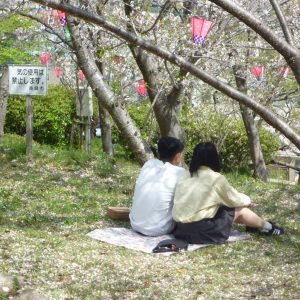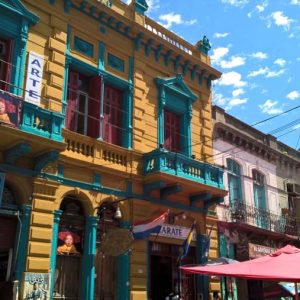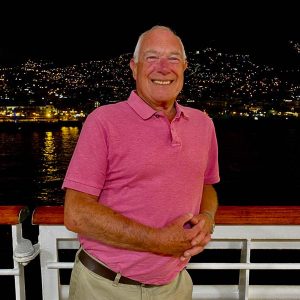As leaders struggle to control climate change, Solange Hando looks up to Bhutan, the land of Gross National Happiness and the world’s only carbon negative country.
GNH was the dream of Jigme Singye Wangchuck, the 4th King (just 17 at the time), a goal firmly enshrined in the Constitution when he set up democracy in 2008. Now alongside sustainable development, good governance and culture, protection of the environment is a key requirement.
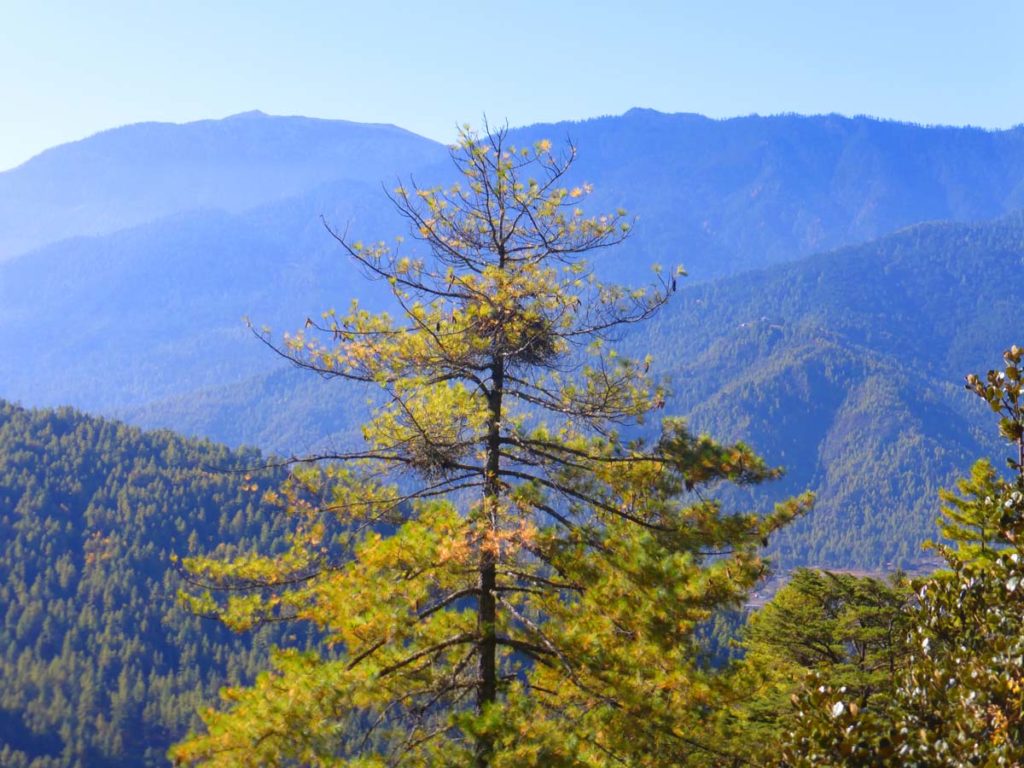
Imagine a tiny mountain kingdom with less than a million people, tucked between two giants, China and India, can you really save your 800 million trees? In Bhutan, you can, with no commercial felling at the moment and at least 60% of the land to remain covered in forest ‘at all times’, over 70% in some areas.
So here it is: Bhutan absorbing four times more CO2 than it emits within its borders. Then as the land rises from 100 metres to over 7500 , you’ll find an enticing range from tropical and deciduous trees to evergreens and Alpine forest. Among my favourites are the tall Himalayan Cypresses -the national trees- and the luminous Blue Pines in western and central districts.
But in Bhutan, nature goes beyond politics. Entwined in animist and Buddhist beliefs, the people almost worship their trees, a gift from the natural world, they say, home to myriad spirits who bring compassion, beauty and longevity. So in March 2016 when a baby prince was born, first child of the new King and Queen, what did the people do to wish him a happy life? They planted trees, 108,000 of them (a sacred number), right across the kingdom as volunteers came out in their droves to help out.
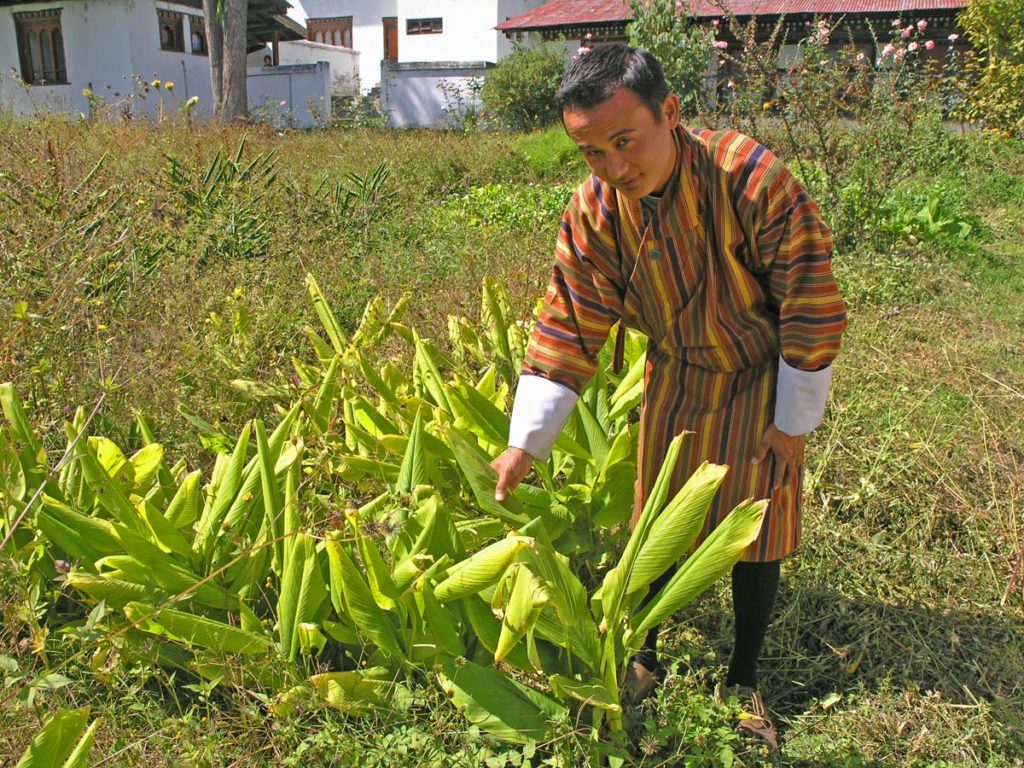
With mighty peaks, deep valleys, rivers and lakes, this biodiversity hotspot is protected by five national parks, four wildlife sanctuaries, a nature reserve and nine biological corridors.
So what will you find?
Magnolia, orchids, blue poppies (national flower), daphne (to make paper), edelweiss, giant rhubarb, lemon grass, 46 species of rhododendrons and 300 of medicinal plants, to mention just a few.
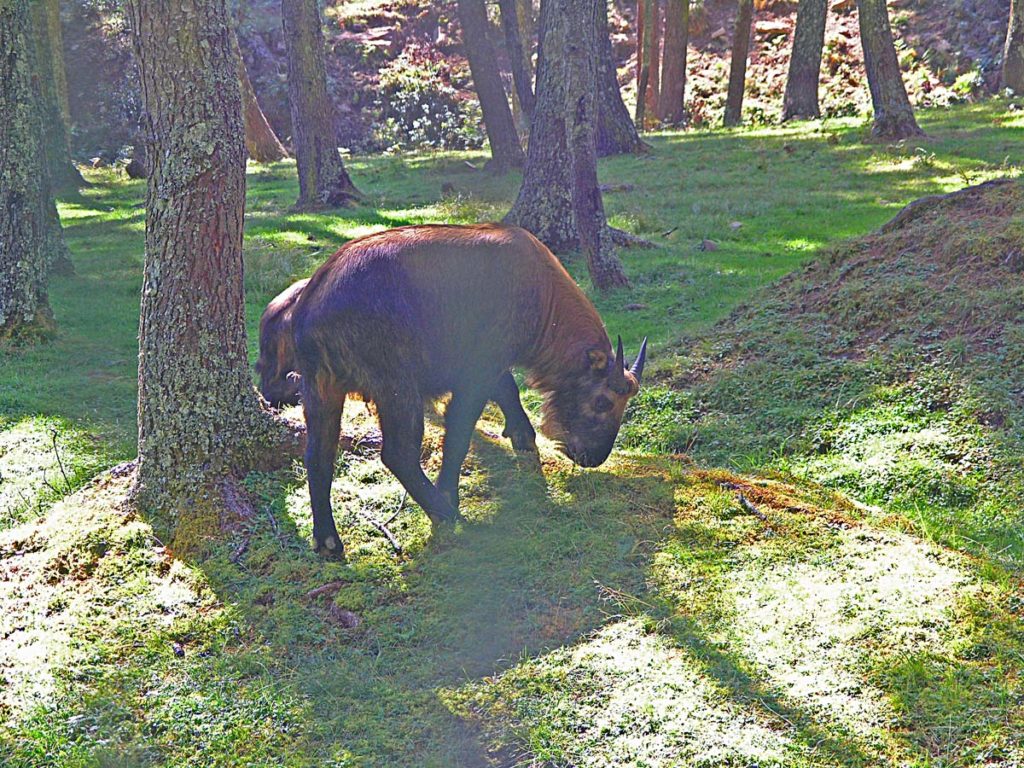
As for the wildlife…
‘Why are those empty sacks hanging from the trees?’, I asked my guide.
‘To keep the bears away, this is school ground…But don’t worry, we won’t get harmed.’
Bears aside and depending on altitude, you may spot monkeys and wolves, elephants, red pandas and if you are very lucky, a rare snow leopard, a Bengal tiger, a unique takin (image left) or any other mammal out of 200 species or so. But most of us remember the birds with a stunning 670 species, including the black-necked cranes migrating from Tibet early November when a festival celebrates their auspicious return.
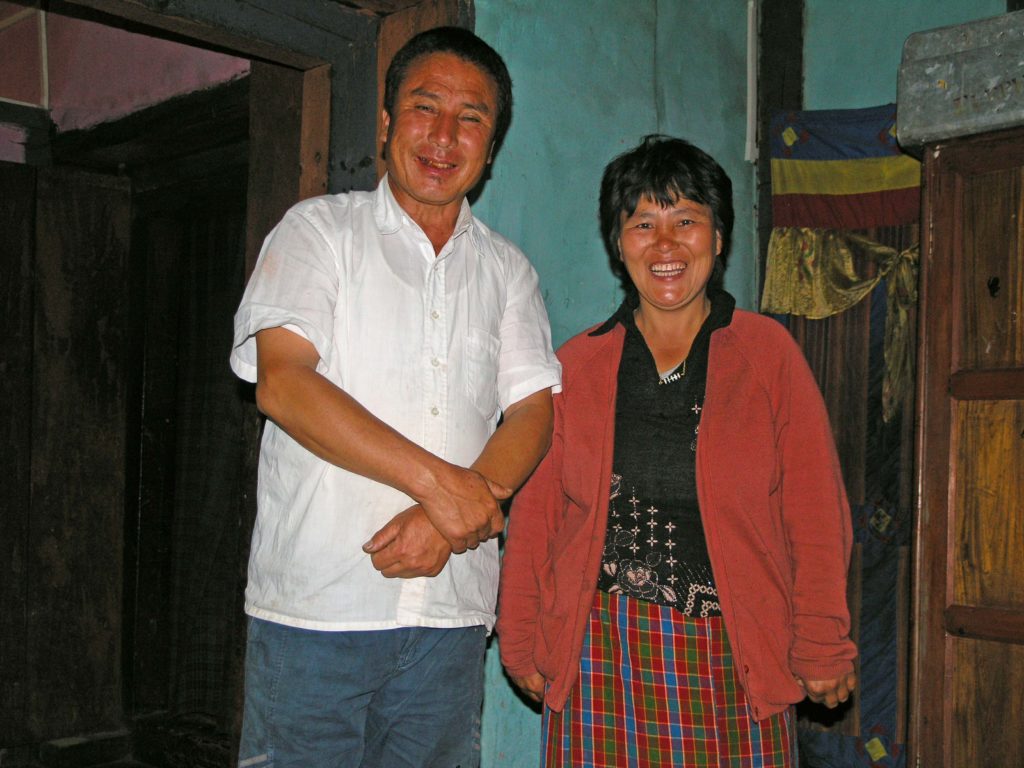
Nature is the heart of Bhutan, no hunting, no fishing, no killing, take only what you need and enjoy.
‘But how do you protect your crops?’ I asked my hosts.
‘If an animal comes too close, we make a noise and chase it away, sometimes we have a night watch.’
I spent two amazing days on the farm, sharing the family’s meals, helping with homework and sleeping in the Buddha’s room. I even tried milking the cows…
Like other farms in the Paro valley, this was self-sufficient for vegetables, fruit and rice as the Bhutanese agriculture aims to be 100% organic by 2023. Initiated by the current King, land reform has enabled remote farmers to settle in accessible villages with agricultural support and basic amenities. And where else would a King stop his car to talk to a farmer, ‘any problem, can we help?’
Does this feel like another world?
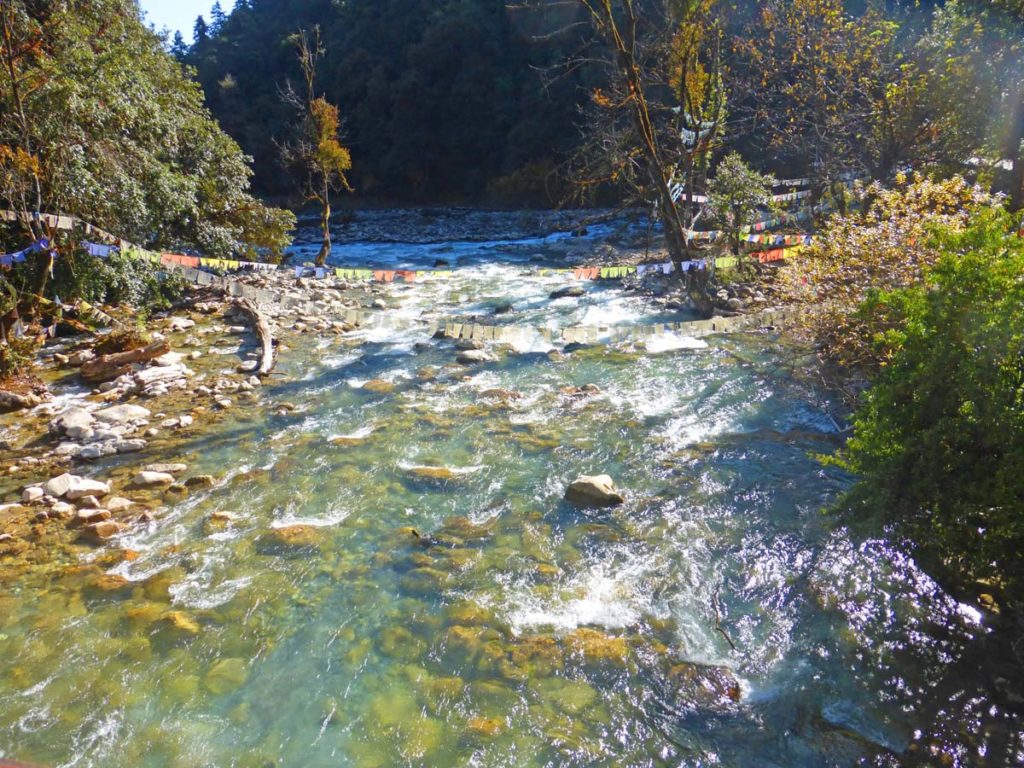
It really is but remember GNH? Culture is paramount but the modern world is welcome as long as it does not clash.
Smart phones, cars (electric too), some new industries and with fast flowing mountain streams, plenty of renewable energy from hydroelectric stations.
In fact, surplus electricity sold to India (the main ally) is a valuable source of income.
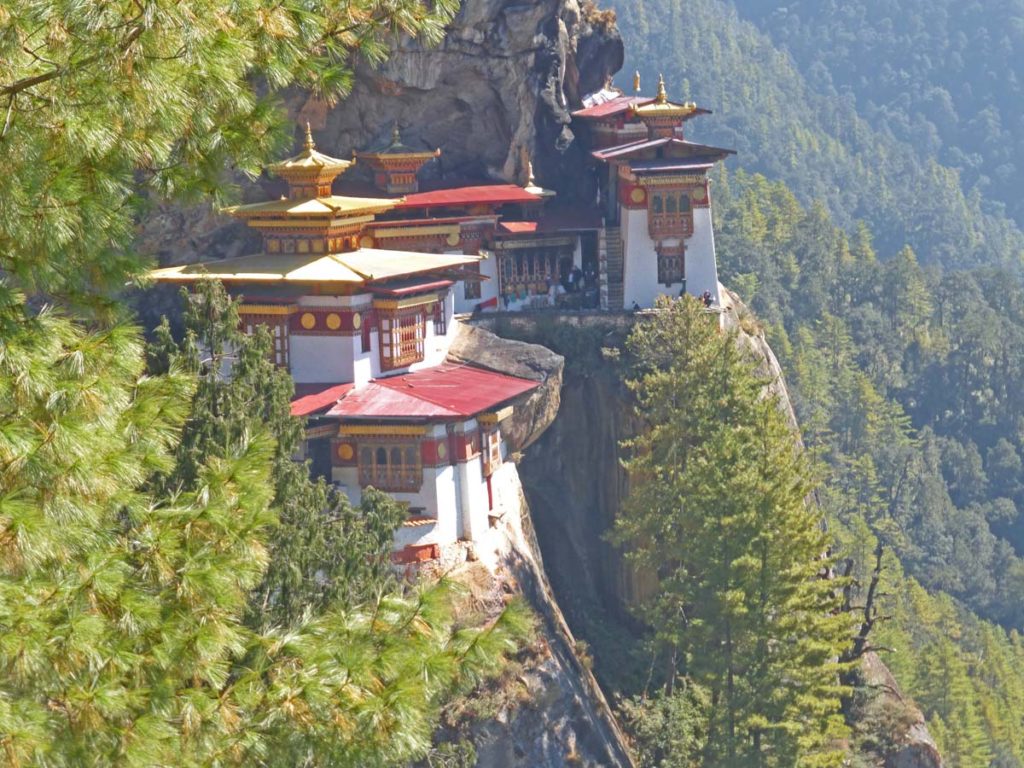
The other major source is tourism, increasingly eco-friendly and carefully kept under control by a minimum charge, US$ 200-250 per person per night, depending on group size. However, this includes full board accommodation, private transport as per itinerary and guide. No backpacking, all tours must be pre-booked with registered operators in an effort to safeguard the traditional culture and natural world.
Now with free education, free healthcare and life expectancy up to 72, Bhutan is moving on, welcoming the future with safer housing and new work incentives so life can be enjoyed to the full.
‘It is all about balance,’ said my friend, ‘between traditional values and material progress’.
Wise words, I thought, and as I plan my next visit, I dream of the snow-capped Himalayas and the Paro valley glowing below the steep forested slopes. 800 million trees? I can’t wait…
Tips for your Trip
- Tread lightly to minimise impact
- Stay on a farm for a day or two, a great experience and support for the community
- Buy local crafts, dearer than market imports but hand-made and eco-friendly
- Enjoy vegetarian food (just beware of chillies!), no killing so most meat imported
- Respect traditions and culture
- Plastic? Don’t bin it, take it home.
- Keep Bhutan tobacco-free (visitors may import for private use, 200% tax)
More Information
Recommended partners include Jules Verne, Cox & Kings and Wendy Wu Tours.

